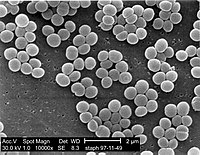
A rat model of enhanced glycation mimics cardiac phenotypic components of human type 2 diabetes : A translational study using MRI.
Sign Up to like & getrecommendations! Published in 2020 at "Journal of diabetes and its complications"
DOI: 10.1016/j.jdiacomp.2020.107554
Abstract: BACKGROUND The success of translational research depends on how well animal models mimic the pathophysiology of the human phenotype, and on the identification of disease mechanisms such as enhanced glycation. METHODS Here, we studied cardiac… read more here.
Keywords: human type; enhanced glycation; type diabetes; glycation ... See more keywords

Mitochondrial phylogenomics of human-type Ascaris, pig-type Ascaris, and hybrid Ascaris populations.
Sign Up to like & getrecommendations! Published in 2020 at "Veterinary parasitology"
DOI: 10.1016/j.vetpar.2020.109256
Abstract: Ascaris lumbricoides and Ascaris suum are parasitic nematodes in human and pig intestines. The two species can cross infect and produce hybrids, which contribute to the controversy concerning the taxonomy of A. lumbricoides and A.… read more here.
Keywords: ascaris; type ascaris; human type; hybrid ascaris ... See more keywords

Zebrafish type I collagen mutants faithfully recapitulate human type I collagenopathies
Sign Up to like & getrecommendations! Published in 2018 at "Proceedings of the National Academy of Sciences of the United States of America"
DOI: 10.1073/pnas.1722200115
Abstract: Significance Type I collagenopathies are a heterogenous group of connective tissue disorders, caused by genetic defects in type I collagen. Inherent to these disorders is a large clinical variability, of which the underlying molecular basis… read more here.
Keywords: human type; type collagenopathies; variability; type ... See more keywords

Human Type I Interferon Antiviral Effects in Respiratory and Reemerging Viral Infections
Sign Up to like & getrecommendations! Published in 2020 at "Journal of Immunology Research"
DOI: 10.1155/2020/1372494
Abstract: Type I interferons (IFN-I) are a group of related proteins that help regulate the activity of the immune system and play a key role in host defense against viral infections. Upon infection, the IFN-I are… read more here.
Keywords: type interferon; antiviral effects; human type; viral infections ... See more keywords

Chronic active non-lethal human-type tuberculosis in a high royal Bavarian officer of Napoleonic times–a mummy study
Sign Up to like & getrecommendations! Published in 2021 at "PLoS ONE"
DOI: 10.1371/journal.pone.0249955
Abstract: In paleopathology, morphological and molecular evidence for infection by mycobacteria of the M. tuberculosis complex (MTC) is frequently associated with early death. In the present report, we describe a multidisciplinary study of a well-preserved mummy… read more here.
Keywords: royal bavarian; human type; infection; evidence ... See more keywords

Three mutations switch H7N9 influenza to human-type receptor specificity
Sign Up to like & getrecommendations! Published in 2017 at "PLoS Pathogens"
DOI: 10.1371/journal.ppat.1006390
Abstract: The avian H7N9 influenza outbreak in 2013 resulted from an unprecedented incidence of influenza transmission to humans from infected poultry. The majority of human H7N9 isolates contained a hemagglutinin (HA) mutation (Q226L) that has previously… read more here.
Keywords: receptor specificity; human type; influenza; h7n9 ... See more keywords

Influence of recombinant human B-type natriuretic peptide on improving ventricular function in patients with ST elevation myocardial infarction.
Sign Up to like & getrecommendations! Published in 2023 at "European review for medical and pharmacological sciences"
DOI: 10.26355/eurrev_202304_32112
Abstract: OBJECTIVE The aim of this study was to investigate the effect of recombinant human B-type natriuretic peptide (rhBNP) on improving ventricular function in patients with ST-elevation myocardial infarction (STEMI). PATIENTS AND METHODS In this retrospective… read more here.
Keywords: ventricular function; human type; type natriuretic; recombinant human ... See more keywords

Characterization of Human Type C Enterotoxin Produced by Clinical S. epidermidis Isolates
Sign Up to like & getrecommendations! Published in 2018 at "Toxins"
DOI: 10.3390/toxins10040139
Abstract: Staphylococcal Enterotoxins (SEs) are superantigens (SAg) originally produced by S. aureus, but their presence in coagulase negative staphylococci (CNS) has long been suspected. This study aims to better characterize a novel C-like enterotoxin expressed by… read more here.
Keywords: type enterotoxin; clinical epidermidis; human type; enterotoxin ... See more keywords

Interactions of Viral Proteins from Pathogenic and Low or Non-Pathogenic Orthohantaviruses with Human Type I Interferon Signaling
Sign Up to like & getrecommendations! Published in 2021 at "Viruses"
DOI: 10.3390/v13010140
Abstract: Rodent-borne orthohantaviruses are asymptomatic in their natural reservoir, but they can cause severe diseases in humans. Although an exacerbated immune response relates to hantaviral pathologies, orthohantaviruses have to antagonize the antiviral interferon (IFN) response to… read more here.
Keywords: human type; non pathogenic; ifn; proteins pathogenic ... See more keywords